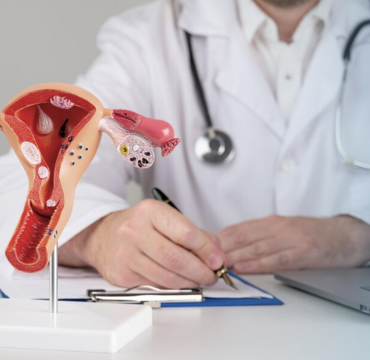Working Time
| Mon-Sat | 10:00 - 06:00 |
| Sunday | Closed |
Request Form
Doctors Timetable
Dr. Shyam Agarwal serves as a Senior Consultant in the Medical Oncology Department at Sri Ganga Ram Hospital. He is available for appointments every day from 10 AM to 6 PM, and on Sundays by appointment.
Emergency Case
In emergency cases, our medical oncologist offers immediate, specialized care tailored to each patient's critical needs, ensuring swift intervention and support.
- 98110 75870
- drshyam_aggarwal@yahoo.com

About
Dr.Shyam Aggarwal
Dr. Shyam Aggarwal is a distinguished figure in the medical field, currently serving as the Head of the Department of Medical Oncology at Sir Ganga Ram Hospital in Delhi, India. Holding degrees in M.B.B.S. from Maharshi Dayanand University and M.D. in Medicine from PGIMER, Chandigarh, his impressive academic journey sets the foundation for his contributions to oncology and hematology. Dr. Aggarwal's expertise is grounded in comprehensive training. This includes Internal Medicine training and Blood Banking basics at PGIMER, Chandigarh, and Clinical Bone Marrow Transplantation at renowned institutions such as the University of Ulm, Germany, St. Vincent's Hospital, Australia, and Los Angeles, USA. Dr. Aggarwal is also a National Talent Search Scheme scholar of ICMR, awarded in 1980...
Cancer FAQ's

Questions
While there are numerous risk factors for cancer, some common ones include tobacco use, excessive alcohol consumption, unhealthy diet and lack of physical activity, exposure to carcinogens such as radiation and certain chemicals, family history of cancer, and certain viral infections like HPV and hepatitis. .
Cancer is typically diagnosed through various methods including imaging tests like X-rays, CT scans, MRI scans, and PET scans, as well as biopsies where a sample of tissue is examined under a microscope to check for cancer cells. Blood tests and other laboratory tests may also be used to detect certain markers associated with cancer.
Treatment for cancer depends on the type and stage of the disease, but common options include surgery to remove tumors, chemotherapy to kill cancer cells, radiation therapy to destroy cancer cells with high-energy radiation, targeted therapy which uses drugs or other substances to attack cancer cells while minimizing damage to normal cells, immunotherapy which boosts the body's immune system to fight cancer, and hormone therapy which slows or stops the growth of hormone-sensitive tumors.
While it's not always possible to prevent cancer, there are steps individuals can take to reduce their risk. This includes avoiding tobacco, limiting alcohol consumption, maintaining a healthy weight through diet and exercise, protecting oneself from the sun and avoiding excessive exposure to ultraviolet (UV) radiation, getting vaccinated against viruses such as HPV and hepatitis, and getting regular screenings for certain types of cancer such as breast, cervical, and colorectal cancer.
Bone marrow is a soft, spongy tissue found inside bones, primarily in the cavities of large bones like the hip and thigh bones. Its main role is to produce blood cells – red blood cells (erythrocytes), white blood cells (leukocytes), and platelets. These blood cells are vital for various functions in the body, such as oxygen transport, immune response, and blood clotting
A bone marrow transplant, also known as a stem cell transplant, involves replacing damaged or destroyed bone marrow with healthy bone marrow stem cells. This procedure is often necessary for treating certain cancers like leukemia, lymphoma, and multiple myeloma, as well as certain non-cancerous conditions like aplastic anemia and sickle cell anemia. The transplant can come from the patient's own cells (autologous transplant) or from a donor (allogeneic transplant).
Bone marrow can be harvested through a procedure called bone marrow aspiration. During this procedure, the donor is typically placed under anesthesia, and a needle is inserted into the pelvic bone to withdraw a small amount of liquid bone marrow. Another method, called peripheral blood stem cell collection, involves stimulating the donor's bone marrow to release stem cells into the bloodstream, which are then collected through a process called apheresis.
Bone marrow transplantation carries risks and potential complications, including graft-versus-host disease (GVHD) in allogeneic transplants, where the donor's immune cells attack the recipient's tissues, infections due to weakened immune function, organ damage, graft failure, and long-term effects such as infertility and secondary cancers. Careful monitoring and management of these risks are essential for a successful transplant outcome.
videos
What Customers Say's
Thanks to Dr. Shyam Aggarwal , I not only received world-class treatment but also the support and encouragement needed to navigate through a challenging chapter in my life. Today, I am grateful to say that I am on the road to recovery, and I attribute much of my progress to the exceptional care I received.
Dr. Shyam Aggarwal not only possesses unmatched expertise but also an unparalleled level of compassion. Their reassuring demeanour and willingness to listen made me feel truly seen and understood during one of the most challenging times of my life.
One feature that truly stands out is the personalised approach to treatment. Dr. Shyam Aggarwal took the time to thoroughly explain all available options, tailoring a plan that suited my specific needs and preferences. This level of attention to detail instilled in me a sense of confidence and trust, knowing that I was receiving the best possible care.

News & Blogs
Dr.Shyam Aggarwal Achievements










.png)
